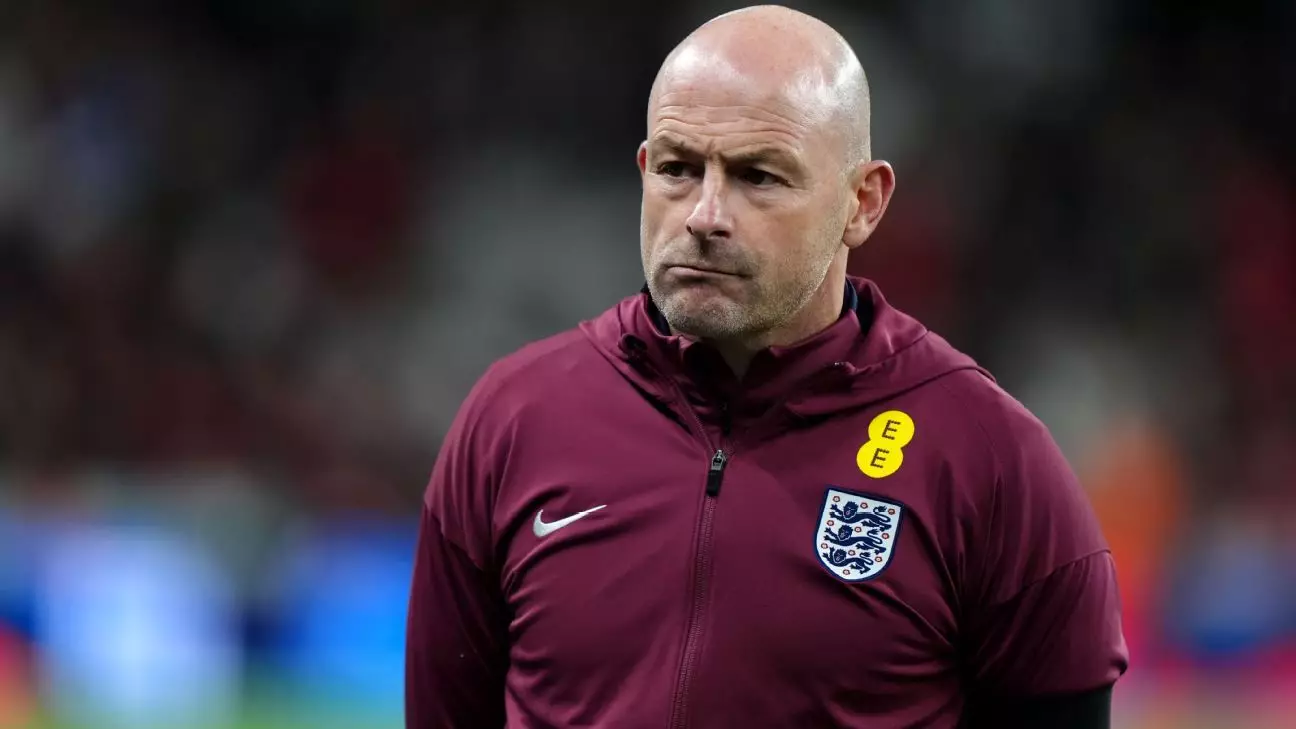In a surprising twist during the UEFA Nations League, England’s interim manager Lee Carsley ventured into uncharted tactical waters, only to find himself navigating a stormy sea. His bold decision to field a lineup featuring the nation’s brightest attacking talents — Bukayo Saka, Jude Bellingham, Phil Foden, Cole Palmer, and Anthony Gordon — backfired spectacularly. Losing 2-1 to Greece, a nation ranked 48th in FIFA, Carsley’s tactical gambit not only raised questions about his stewardship but also brought to the fore the deeper, festering issues within the England team setup.
The fundamental question remains: can a team with so many attacking stars successfully coexist? Carsley’s initial strategy seemed to be one of unrestrained ambition, attempting to accommodate all these creative minds into the starting eleven. However, the outcome painted a different story entirely. With the players ostensibly all vying for the limelight, England’s play became a muddled mess of overlapping runs and misplaced passes. Rather than producing a fluid attacking display, the formation devolved into a chaotic tactical mishmash that Greece exploited to devastating effect.
Bellingham was instrumental in both creating opportunities and attempting to fill in gaps in midfield. However, with no clear strategy backing their individual talent, Greece asserted their dominance. Instead of complementing each other’s strengths, the players appeared lost amid Carsley’s experimental framework.
Defensive Fragility and Tactical Disarray
Even with a midfield populated by potential superstars, England’s defenses were akin to a house of cards — easily toppled. Declan Rice found himself overwhelmed, often left to extinguish the fires ignited by Greek counter-attacks. This defensive imbalance underscored a dreadful lack of cohesion and organization. Carsley’s tactical structure, which placed Trent Alexander-Arnold in a more central role, contributed to the confusion, as England frequently appeared outnumbered in crucial defensive situations.
The Greek side displayed commendable structure and tenacity, contrasting sharply with England’s erratic play. Following a disconcerting open five minutes for England, which included a close call when Vangelis Pavlidis almost struck early, it was evident that Carsley’s side was ill-prepared to deal with Greece’s rapidly transitioning offense.
England’s embarrassment was compounded when Pavlidis’ 94th-minute winner sealed the fate of the match, marking Greece’s first-ever victory over England in a competitive fixture on English soil. To add insult to injury, this result came against a team that had failed to qualify for Euro 2020. It painted a grim picture for Carsley and left many fans questioning the future of England’s national team structure.
Reflecting on the calamity, Carsley’s admissions about the night were grim. He acknowledged the pervasive faults in his experimental system while suggesting a level of courage necessary to embrace the talent at his disposal. However, this rhetoric felt misplaced in the face of such stark reality. The boldness to experiment is admirable, but the losses sting far more than the potential gains when results sharply contradict the philosophy espoused.
Looking forward, England faces a crucial juncture; the loss to Greece demands an immediate re-evaluation of not just tactical approaches but also the broader footballing philosophy employed by the national team. With upcoming fixtures against Finland, the interim manager finds himself in a precarious position, needing a strong rebound to avert more pressure from fans and the Football Association (FA).
The FA’s ongoing search for a permanent manager only adds layers to the already complex situation, as Carsley’s experimental time in charge has been marred by disappointment. A win would provide some much-needed breathing room, but a sequence of losses could prove disastrous for his prospects.
As the dust settles on this discouraging chapter for England football, the debate regarding the compatibility of its attacking talents is more pertinent than ever. It raises the question of whether the collection of individual brilliance can meld into an effective force or whether they risk burning out in their attempts to shine as individuals.
The defeat against Greece serves not only as a rude awakening for Carsley but also as a cautionary tale for future managerial appointments. As England’s footballing identity continues to evolve, future strategies must prioritize balance over mere talent assemblage. Until then, the road ahead for the Three Lions looks unpredictable, with the highest stakes now looming on the horizon.


Napsat komentář